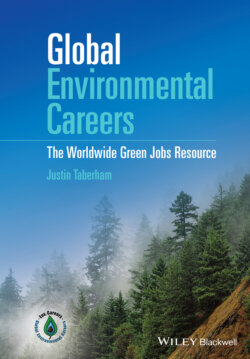Читать книгу Global Environmental Careers - Justin Taberham - Страница 114
1.11 Reality Check
ОглавлениеIt is worth having a reality check in terms of working in the environment sector. There are many ways that you can benefit the environment, even if you don’t work in the sector. Many people volunteer outside work for NGOs or make donations to contribute to green efforts.
The excellent 2014 blog article ‘5 ways to make a big difference in any career’ by Benjamin Todd (2014) on the 80,000 Hours website notes:
At 80,000 Hours, we’re focused on finding the very best opportunities for you to do good with your career. We’re worried that sometimes this continuous focus can be demoralising. After all, it’s hard to find the best opportunities. Moreover, we’re worried that sometimes our members lose sight of the fact that you can make a big difference in any career.
A 2015 BBC article bluntly notes ‘it could well be effectively better to become a very rich banker and give away your money than go and work for an NGO in Kenya.’
A common route taken to a green career is being an environmental consultant, but as EarthHow’ (2021) highlighted in the article ‘The Good, the Bad and the Ugly for Environmental Consulting Careers’:
After graduation, you’ll probably want to land a job where you can make a positive difference to the environment. The startling truth is that ‘making a difference’ is not the job description of an environment consultant. Your very existence impacts the environment by documenting local conditions prior to human impacts, evaluating human impacts, or cleaning up human impacts. You are a scientist or engineer collecting data, developing a solution and writing reports. You enforce environmental regulations. There are rare opportunities for you to change the world.
Within the environment sector, pay is generally not high, especially within NGOs. However, competition for roles is very intense for most roles.
The importance of certain personal qualities has already been mentioned in the book introduction. There are some personal qualities that are essential for someone seeking to develop an environmental career. As for many roles, there are skills that you should be able to demonstrate – teamwork, negotiation, languages, and good time keeping. One word commonly mentioned is ‘stickability’. You need perseverance to do well in a sector which is very popular and where roles can be poorly paid.
There is a major stumbling block for those wanting to begin a career in the sector – the vicious circle of ‘no experience no job, no job no work experience’. There are a number of sectors where you now have to pay for work experience to enable you to gain professional development and transferable skills. This vicious circle can be a thorny problem unless you have the resources to afford ‘paid for work experience’.
There has been a backlash against this practice and against the offering of unpaid work experiences which are in practice using free workers to undertake tasks that would normally be paid for. There is no easy answer to this challenge. I carried out a lot of volunteer work whilst at school and I was fortunate enough to have a paid work experience at university. The earlier book section on Volunteering noted the pitfalls of volunteering and internships.
In terms of training, there are many options for increasing your qualifications and skillsets. Some training providers are costly (and some of these courses are worth the cost), but there are many courses delivered by local, national, and online providers, which have a low cost or are free.
